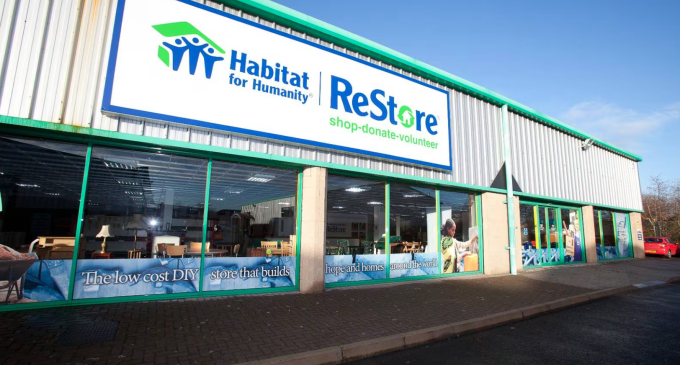Dublin Artist and Beekeeper Turns Discarded Materials into Homes and Gardens

Dublin-based artist and beekeeper Anthony Freeman O’Brien is on a mission to build sustainable homes using discarded materials. His recent project involved constructing a greenhouse from plastic Covid screens and timber salvaged from a skip, providing more growing space for pollinator-friendly plants. This initiative not only reduces waste but also supports urban biodiversity, creating a win-win scenario.
O’Brien believes in the potential of usable building materials that are often thrown away, ranging from leftover items to wrongly sized windows and doors. Recently, he has expanded his creative efforts to build entire houses from these reclaimed materials, showcasing the environmental and cost-saving benefits of upcycling.
In a broader context, the concept of repurposing discarded materials is gaining traction, and the Habitat ReStore chain of shops operated by housing charity Habitat for Humanity is a notable example. With five branches in Northern Ireland and one in Drogheda, Co Louth, the organization is eyeing the opening of a Dublin shop later this year.
Jenny Williams, CEO of Habitat for Humanity, emphasizes that Habitat ReStore exclusively sells donated materials, creating a dynamic inventory that varies each week. The shop’s commitment to rescuing approximately 1,500 tonnes of materials annually has made a significant impact, with over 95,000 transactions last year and the preservation of 250 kitchens from ending up in landfills.
Williams notes that the collaboration with partners like Sonas Bathrooms and Murdock’s Builders Merchants facilitates a continuous influx of donated supplies, fostering a sense of community around the concept of salvage. The “kitchen rescue” service, where old kitchens are carefully removed for a donation, not only prevents waste but also provides valuable training opportunities for individuals interested in dismantling and reinstalling kitchens.
With the upcycling agenda gaining momentum, Williams believes that people are increasingly proud to associate with Habitat ReStore, viewing it as a conscious choice to care for the environment, repurpose materials, and make affordable options accessible to those on tight budgets.
In a world where “your trash is my treasure,” initiatives like these not only contribute to the circular economy but also promote a culture where salvage becomes a beautiful lifestyle choice for a more sustainable future.







